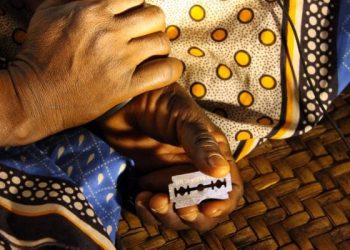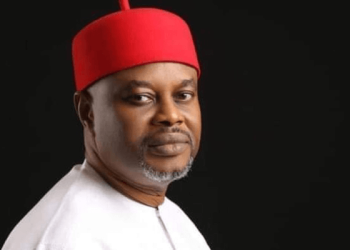It is a year filled with foreboding. But Nigerians can make it work
What does 2015 hold for Nigeria? A lot. The year stands out not necessarily because the country will be breaking new grounds in critical fields of human endeavour but rather because Nigeria is due for a general election early in the year; indeed barely days away, on February 14. And mindful of our political history and culture as well as the mixed messages and unguarded utterances of politicians, many doubt the ability of the nation to pull through the minefield. The rising political temperature in the build up to the 2015 election feeds the thoughts of a looming danger, hence all manner of doomsday predictions.
The presidential election indeed promises to be fiercely contested. For the first time in the history of the nation, the ruling Peoples Democratic Party (PDP) will be challenged by a robust opposition party, the All Progressives Congress (APC). The prediction is that the election could go either way. President Goodluck Jonathan, at the last Sunday church service for 2014 in Abuja, admitted that 2015 would be a “tempting” year because of the elections.
However, while the risks are clear, they are not insurmountable. It is within the ability of the nation and the political class to defuse the tension and tame the monster of fear and instability. In the last few weeks, many concerned Nigerians have been working hard, contributing and sharing ideas on how to make the election peaceful and violence–free. Even the operatives of the political parties themselves are speaking up in that regard.
The APC is rightly asking for a follow up on an earlier commitment by both parties in Washington, DC, United States, where they agreed on a joint meeting to set codes of conduct for the campaigns and the elections. “Even with the little time left for the elections to hold,” said the APC “we strongly believe that a meeting of the leadership of the two political parties, the APC and the PDP, will send a powerful message to our compatriots and, indeed, the international community and douse the tension that is building up ahead of the election.”
We endorse such initiatives aimed at fostering a sense of oneness and peaceful solutions through a consensus. But equally important, the electorate must conduct themselves peacefully during and after the elections. The electoral body, the Independent National Electoral Commission (INEC) in collaboration with security operatives must also conduct their activities in a professional manner while ensuring that the votes are counted and that they count. The will of the people should prevail after the voters must have exercised their franchise in an atmosphere of peace.
But the tension in the air is not helped by the prevailing insecurity particularly in the Northeast as well as recent economic crisis enabled by oil shocks. In the last five years, the country has been waging a war against Boko Haram, a vicious Islamic sect that has killed thousands and driven more than a million out of their homes, some across borders into neighbouring Cameroun, Chad and Niger. What are the plans to end this bruising and costly rebellion? What will the parties do differently from what is on the table?
Equally important is the economy. Measured by the national Gross Domestic Product (GDP), Nigeria looms large on the continent, with very impressive statistics. Measured by development index, Nigeria fares worse than many of its poorer neighbours. In the last few months, the economy has been buffeted by falling oil prices, prompting an austerity budget for the year. Today, there is a broad consensus that the country needs a comprehensive reform for the economy to recover and thrive. Perhaps that will happen after the February general election.
We wish all Nigerians a peaceful and prosperous 2015.














































